The Magic of the Black Earth
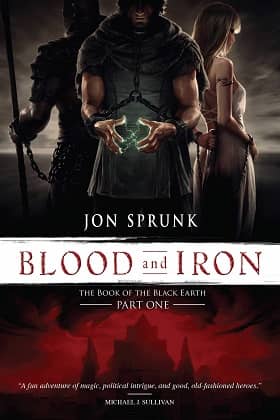 |
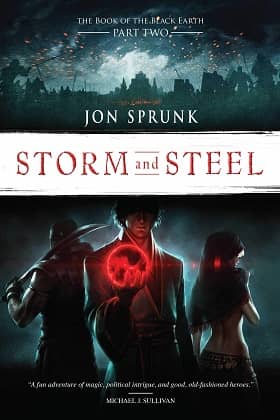 |
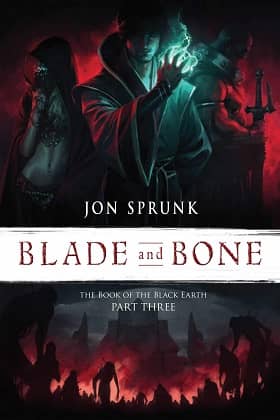 |
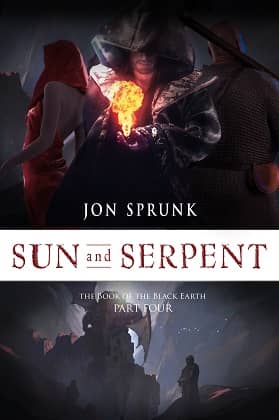 |
The Book of the Black Earth (Pyr Books). Covers by Jason Chan
Six years ago, when I was conceptualizing a new fantasy series, I spent a lot of time thinking about the setting world. And I knew from the start that one of the primary building blocks would be the magic system.
For those of you who have read my Shadow Saga trilogy, you no doubt realized that magic played a big part in the events, especially in the second and third books. I knew that magic would be even more important in the new series, that it would be entwined into every aspect of the story, so I wanted its foundation to be rock-solid from the start.
After considering a few different systems of magic, I decided that one based on the primary alchemical elements (earth, water, fire, and air) would best fit the story I was telling. It been done many times before, perhaps most notably in the Wheel of Time saga by Robert Jordan and Brandon Sanderson, but it still appealed to me because it matched well with the non-western philosophies and themes I was aiming to use.
I have studied several disciplines of martials arts over my lifetime, and one of the things which most appeals to me about eastern fighting styles is the concept of balance. Hard versus soft, aggressive versus pliable, offense and defense. These opposites are joined together in a natural back and forth that revolves around finding a balance. A hard style becomes soft, defense turns into offense, and so forth. In developing the magic system for the new series, I ran with this concept. In this world I was building, the cosmic forces had lost their balance and a calamity was approaching.
[Click the images for Black Earth-sized versions.]
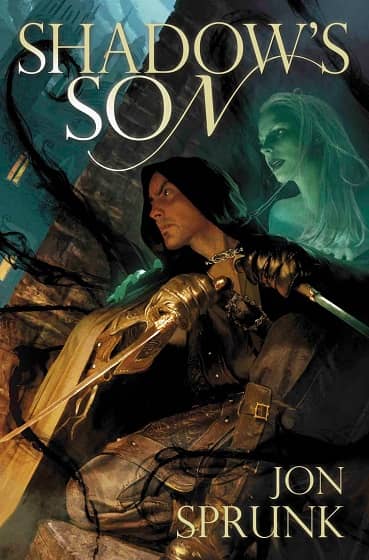 |
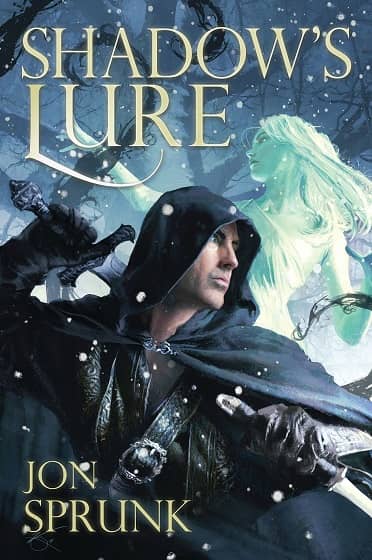 |
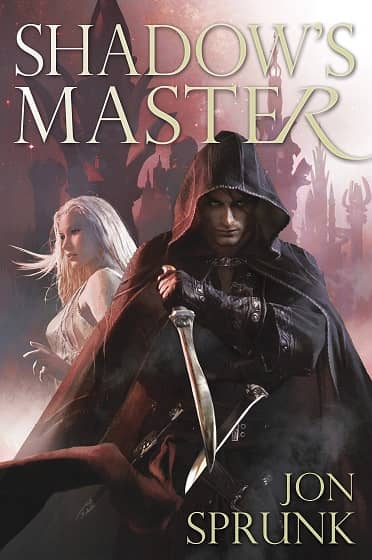 |
The Shadow Saga (Pyr Books). Covers by Michael Komarck
I also included a fifth element to my magic system: the eastern concept of void. The void is both everything and nothing at all. It is the elastic that binds the universe together. In The Book of the Black Earth, the void has two sides, the positive creative force and the negative destructive side. When these books begin, a master of destruction has arisen in secret, with aims to conquer the world and remake it in the image of his sinister benefactors. If this enemy cannot be stopped, all sense of balance will be destroyed and an age of darkness will fall over the world.
As I began writing the first book, Blood and Iron, I didn’t want magic to be a universal solution to all problems for all people. It had to be exclusive and rare. The first obstacle I placed for wannabe wizards was genetic. A character had to be born with the ability to tap into the magical elements.
I understand this isn’t a revolutionary idea. So, I introduced another barrier to power – the immaculata. In these stories, when a character uses magic, wounds appear on her body. Small wounds for small uses of magic, and larger, more deadly wounds for big undertakings. This was the price paid in blood for a practitioner’s power. So, when a hero comes along who can wield great magical power without suffering any immaculata, everyone is freaked out. Some see him as a savior, others as a servant of evil.
As for the technical aspects of spellcasting, I have long been a fan of the traditional, ritualistic styles of magic, using incantations and esoteric material components. However, that style didn’t mesh well with the story I wanted to tell. First of all, one of my heroes is a stranger to sorcery, thrust into dangerous situations right from the start. He doesn’t have time to learn complicated rituals. Second, I wanted the magic-users in this series to be extremely powerful compared to non-magicians. Rituals can be interrupted by a stray arrow or stab of a knife. So, I decided to make this magic almost instantaneous.
Lastly, I had to consider the origin of magic in this fictional world. Because I was basing the setting on ancient Babylonian culture, religion played a huge part in the people’s daily lives. I decided that these people believed magic came from the gods. Thus, magic-users were considered divinely blessed (and thus, destined to rule over mundane peoples). Few sorcerers knew or even suspected that their power really came from an alternate universe, and every time the destructive side of the void element was used, tears opened in the spectral fabric between the two worlds.
In writing a fantasy series, there are so many factors to consider, and one of the biggest is the magic system you will use. In my own writing, I strive to be elegant and also easy for the reader to understand. But, at the end of the day, there is no “right” method. Writing fiction is all about experimenting with new ideas and making connections.
Thank you for reading.
Jon Sprunk is the author of the fantasy epic The Book of the Black Earth as well as the Shadow Saga trilogy. His last article for Black Gate was The Day Job. For more on his life and writing, check out www.jonsprunk.com.